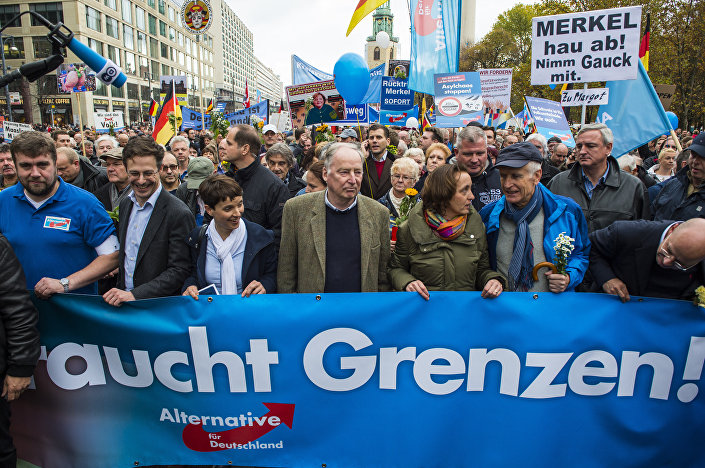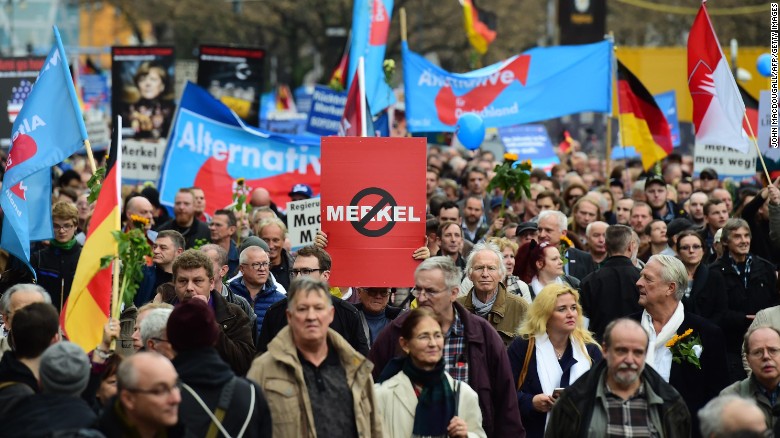For the first time in 60 years, an overtly nationalist party sits in the Bundestag. The far-right, anti-immigration AfD made a historic breakthrough, winning 13.5% of the vote and projected 87 seats in the latest German elections.

The party’s performance marks a major shift in Germany’s postwar politics that is likely to produce a very different tone and dynamic inside the Bundestag. The radical right party profited from the fact that immigration was the number one election issue.
The far-right party promised constructive opposition in the parliament, but the Greens already complained that “Nazis have returned to parliament”.

Merkel, who won for the fourth time as the German Chancellor, was criticized for her welcoming policies towards refugees and asylum seekers. She now has an even stronger challenge with the AfD being a considerable part of the parliament.

The AfD is now the Bundestag’s third largest party, and are expected to influence the parliament policies against migrants and asylum seekers.


